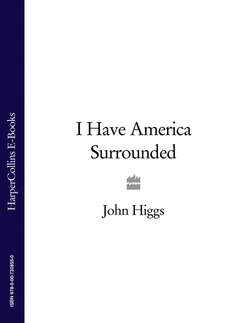Читать книгу I Have America Surrounded - John Higgs - Страница 6
Foreword
ОглавлениеThree months after I was born, my dad, who was Tim’s archivist, went to see him in Switzerland, where Tim was living in exile after escaping prison and being called ‘the most dangerous man in the world’ by President Richard Nixon, who was furiously trying to hunt him down.
My dad and Tim took acid and went skiing, and my dad pulled out a picture of me—the first one ever taken (I was a day old)—and showed it to Tim and asked if he would be my godfather. Tim said: ‘Sure.’
We didn’t meet until seven years later, after Tim was released from prison and came to visit us on our commune in Mendocino County We were walking along a dusty road on a remote mountain ridge. It was sunset and we were holding hands. I looked up at him and said: ‘They say you’re a mad scientist.’
Tim smiled and said: ‘I know.’ I think he liked the sound of that.
Around the time I became a teenager I wanted to be a writer. This, of course, thrilled Tim and we talked constantly about books. My favourite literary character was Holden Caulfield; his was Huck Finn. We talked about the similarities between the two characters—especially their feelings of alienation from polite society. I wanted to catch all the kids falling off the cliff and Tim wanted to light out for the territory. It was a time when I was in my first throes of adolescence and experiencing that kind of alienation. And talking to Tim was the light at the end of the tunnel.
He really understood my generation. He called us ‘free agents in the Age of Information’.
What I learnt from Tim didn’t have anything to do with drugs, but it had everything to do with getting high. His die-hard fascination with the human brain was not all about altering it, but about using it to its fullest. And he showed us that that process—that journey—was our most important one…however we did it, as long as we did it. ‘You are the owner and operator of your brain,’ he reminded us.
Tim was a huge influence on me—not just with his revolutionary ideas about human potential, but as someone who read me stories, encouraged me, took me to baseball games—you know, godfather stuff. He was the first person outside my family—who you never tend to believe while growing up—to make me believe I could do anything. He had an incredible way of making you feel special and completely supported.
F. Scott Fitzgerald wrote a letter to his daughter in which he said that he hoped his life had achieved some sort of ‘epic grandeur’. Tim’s life wasn’t some sort of epic grandeur. It was flat out epic grandeur.
It’s easy sometimes to get lost in all the drug stuff that Tim’s famous for—all the ‘Turn on, tune in, and drop out’ stuff, especially in a society that loves a sound bite. But it wasn’t Tim’s only legacy. It was his vitality, enthusiasm, curiosity, humour and humanity that made Tim great—and those are the real ingredients of a mad scientist.
Winona Ryder Delivered at Timothy Leary’s memorial service 9 June 1996, Santa Monica, California
